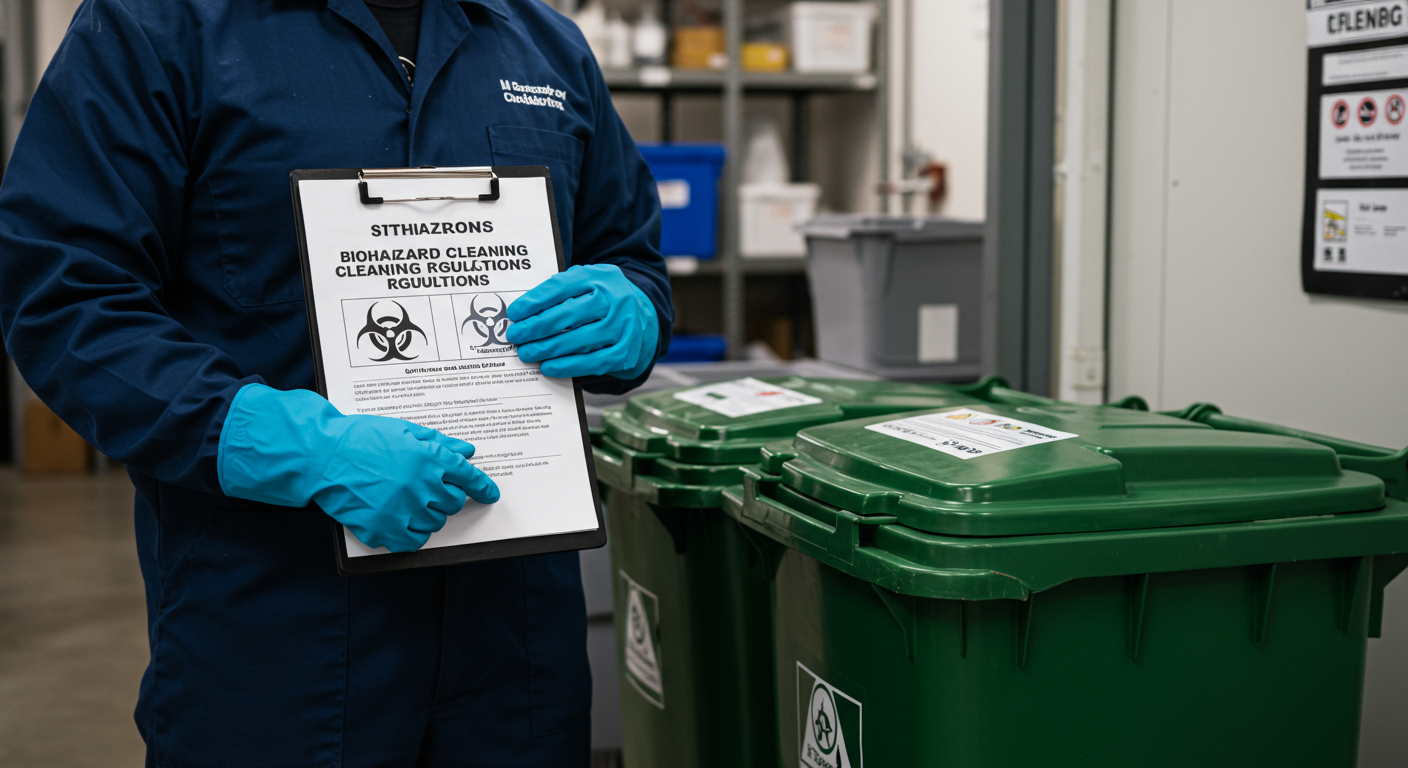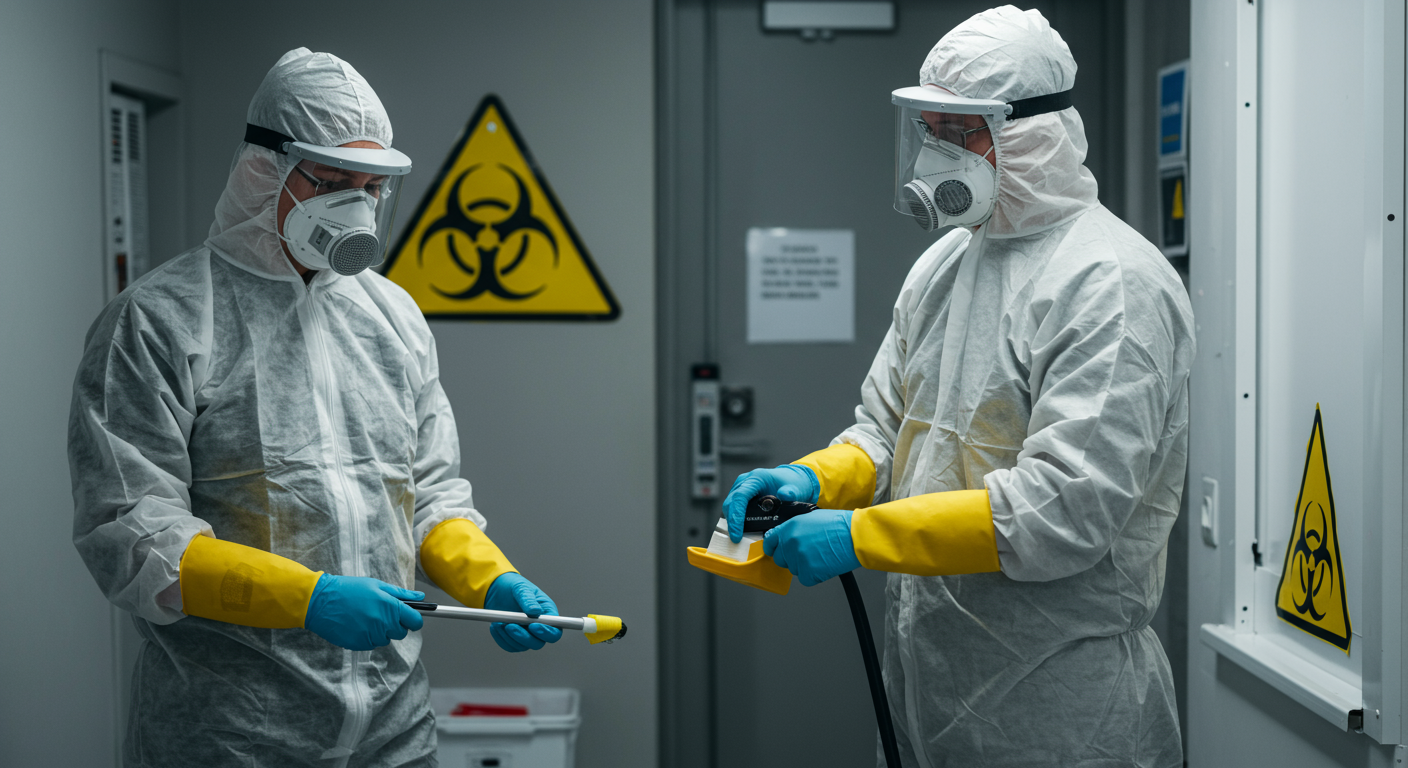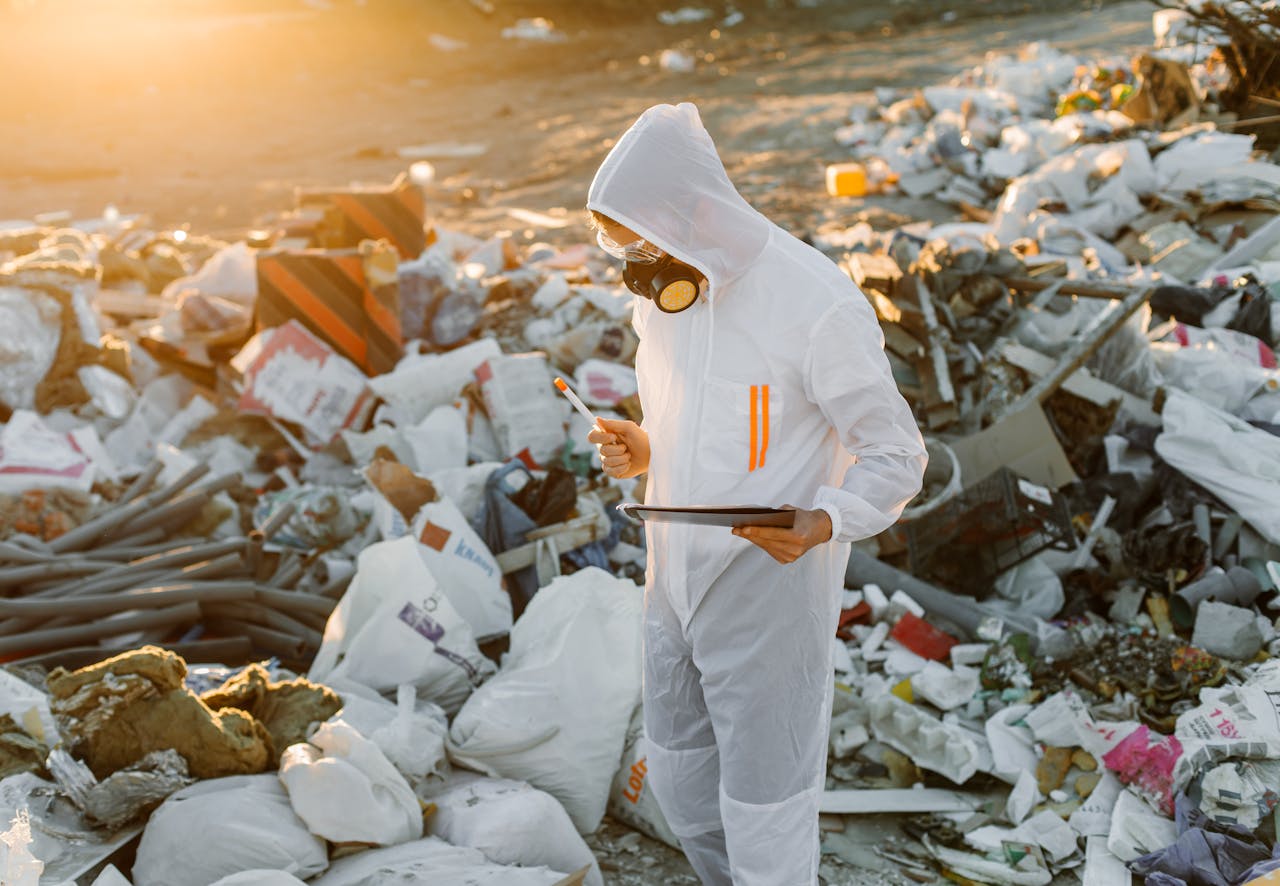Biohazard cleaning is a critical service that ensures the safe removal and disposal of hazardous materials, protecting both public health and the environment. In Springfield, IL, the process is governed by strict regulations and requires specialized expertise. This guide provides an in-depth look at biohazard cleaning requirements, the regulatory framework, and the steps involved in proper cleanup procedures.
Understanding Biohazard Cleaning
Definition of Biohazardous Waste
Biohazardous waste refers to materials that pose a risk to human health or the environment due to contamination with infectious agents. This includes blood, bodily fluids, medical waste, and other potentially infectious materials. Proper handling and disposal of these materials are essential to prevent the spread of diseases and ensure public safety.
Importance of Professional Biohazard Cleaning
Professional biohazard cleaning services are equipped with the necessary tools, training, and certifications to handle hazardous materials safely. They follow stringent protocols to clean, disinfect, and dispose of biohazardous waste, minimizing risks to individuals and the environment. Attempting to clean biohazards without professional help can lead to health hazards and legal complications.
Regulatory Framework for Biohazard Cleaning in Springfield, IL
Overview of Illinois Environmental Protection Agency (EPA) Guidelines
The Illinois EPA provides comprehensive guidelines for managing biohazardous waste, ensuring that all processes comply with state and federal regulations. These guidelines cover the handling, transportation, treatment, and disposal of biohazardous materials to protect public health and the environment.
Key Regulations for Potentially Infectious Medical Waste (PIMW)
In Illinois, Potentially Infectious Medical Waste (PIMW) is subject to specific regulations. These include requirements for proper labeling, storage, and transportation of waste. Facilities generating PIMW must adhere to strict protocols to prevent contamination and ensure safe disposal. Non-compliance can result in hefty fines and legal consequences.

Steps for Proper Biohazard Cleaning
Segregation and Packaging of Biohazardous Waste
The first step in biohazard cleaning is the segregation of waste based on its type and level of contamination. Proper packaging in leak-proof, puncture-resistant containers is crucial to prevent spills and exposure during handling and transportation.
Transportation and Storage Requirements
Biohazardous waste must be transported in compliance with state and federal regulations. This includes using licensed carriers and ensuring that waste is stored in secure, temperature-controlled facilities to prevent contamination and odors.
Treatment and Disposal Methods
Treatment methods such as autoclaving, incineration, or chemical disinfection are used to neutralize biohazardous waste. Once treated, the waste is disposed of in designated facilities that meet environmental safety standards. Proper documentation and tracking are essential to ensure compliance with regulations.
Choosing a Professional Biohazard Cleaning Service
What to Look for in a Biohazard Cleanup Company
When selecting a biohazard cleanup service, it is essential to consider their experience, certifications, and compliance with local and federal regulations. Look for companies that offer comprehensive services, including cleaning, disinfection, and waste disposal.
Importance of Certification and Compliance with OSHA and EPA Standards
Certified biohazard cleaning companies adhere to Occupational Safety and Health Administration (OSHA) and EPA standards, ensuring that all procedures are carried out safely and effectively. Certification demonstrates a commitment to quality and compliance, providing peace of mind to clients.
For more insights into professional biohazard cleanup services, check out Comprehensive Biohazard Cleanup Services in Minneapolis: Your Trusted Partner for Safety and Restoration.
Biohazard cleaning is a specialized field that requires expertise, adherence to regulations, and a commitment to safety. By understanding the requirements and choosing a certified professional service, residents and businesses in Springfield, IL, can ensure the safe and effective management of biohazardous waste.


